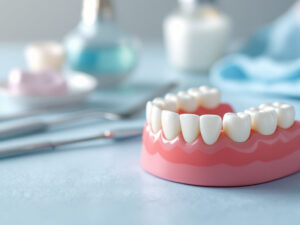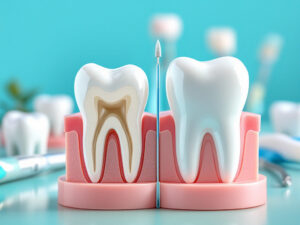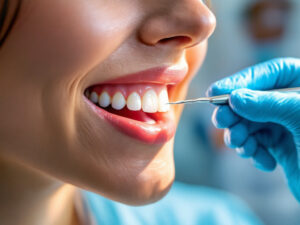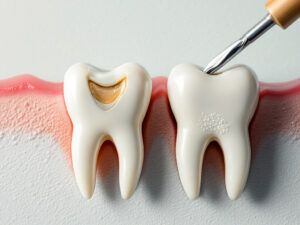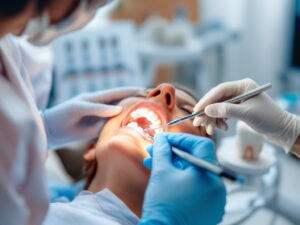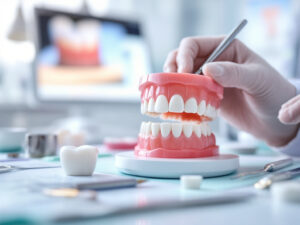Understand the value of a dental implant consultation
A dental implant consultation can be a profound turning point in improving your oral health. When you have one or more missing teeth, it is normal to feel unsure about the best way forward. You might wonder about practical matters such as costs and timelines, or maybe you worry about how invasive the process will be. Rest assured that through a thorough consultation, you gain clarity before making decisions about your treatment path. You also have the chance to establish a supportive relationship with your dental team, which can make a significant difference in achieving lasting results.
During a consultation, a qualified dentist reviews your medical and dental history, discusses any potential concerns, and guides you through the specifics of dental implant therapy. If you choose Cloninger Dentistry for this step, you will discover a caring environment committed to preventive hygiene, family dental care, and cosmetic dentistry. The goal is to ensure you fully understand your options and feel empowered to make decisions that align with your personal goals. You will likely discuss factors like bone health, need for bone grafting, and your day-to-day lifestyle to determine how dental implants might fit into your life.
Also, a key benefit of scheduling a dental implant consultation is that you learn whether you are an ideal candidate for dental implants. Preliminary tests, such as X-rays or digital scans, can reveal any underlying issues with your jawbone density and gum health. This in-depth assessment is vital to predicting how smoothly the implant procedure might go—as well as gauging what additional steps, if any, might be needed. For instance, if your jawbone is thin or has lost density over time, bone grafting could be recommended to create a strong foundation for your future implant. By gaining a clear picture of your oral health needs, you and your dentist collaborate on a personalized plan that sets you on the path to a lifetime of confident smiles.
Assess your suitability for implants
Determining whether a dental implant is right for you is a crucial aspect of the consultation. Dentists generally look at factors like your age, oral hygiene, lifestyle habits, and any medical conditions that might affect healing or overall oral health. For example, individuals over 18 years old with healthy gums and adequate bone density in the jaw are typically good candidates. If conditions such as periodontal disease exist, additional treatments may be necessary to restore gum health before moving forward with implants.
Your dentist will also ask about your daily habits, including smoking or any medications that might affect the healing process. Smoking, for instance, can impair your body’s ability to heal, potentially leading to complications after the surgery. As a result, your dentist may recommend quitting or reducing smoking before proceeding. Through this conversation, you gain a deeper understanding of the importance of proper oral care, not only for the success of the implant procedure but also for your overall health.
In some cases, a comprehensive evaluation reveals the need for bone grafting or sinus lift procedures to increase bone stability before the implant can be placed. According to research from the Mayo Clinic (Mayo Clinic), if the jawbone is too soft or not thick enough, it might not securely hold the implant. A bone graft—using either natural or synthetic materials—enables the bone to regenerate, creating a stronger structure to fuse with the implant post. Such preliminary steps can add to the overall timeline, but they dramatically improve the chances of a successful implant and reduce the risk of long-term complications. This approach aligns well with Cloninger Dentistry’s focus on delivering comprehensive care. By taking the time to address these underlying issues, you set the stage for a successful treatment that safeguards your health and well-being for years to come.
Explore the consultation process
The consultation process for dental implants typically includes a series of steps designed to give you a clear, realistic understanding of what lies ahead. Once you make an appointment, you will discuss your dental history—such as past treatments, existing restorative work, and any relevant medical conditions—with your dentist. This step helps pinpoint unique challenges, possible risk factors, and your expectations regarding the implant. Knowing your perspectives and concerns allows the dental team to tailor the process to your goals, reflecting the empathetic and supportive tone central to Cloninger Dentistry’s practice.
Next, you undergo a physical oral exam supported by diagnostic imaging. According to findings from Harrisdale Dental Centre (Harrisdale Dental Centre), dental imaging—such as X-rays or cone-beam CT scans—plays a pivotal role in formulating an individualized treatment plan. These scans provide a three-dimensional picture of your jawbone and surrounding structures, enabling the dentist to gauge bone density, nerve location, and sinus position. This level of detail is essential to successful implant placement, minimizing the risk of complications and ensuring a stable foundation for the implant.
During or after the exam, your dentist will talk you through the best possible treatment pathway. If you need preparatory procedures, such as gum treatments or bone grafting, this will be integrated into your plan. You can also go over the cost expectations, discuss insurance coverage, and formalize your timeline. This collaborative approach underscores the importance of understanding each part of your journey, so you can feel confident and encouraged.
If you are someone who experiences anxiety, you can also find out about sedation options, such as the sedation dentistry service available at Cloninger Dentistry. By scheduling a dental implant consultation and walking through these essential steps, you will know exactly where you stand and what to expect next. This clarity, combined with a supportive environment, fosters trust and decreases the anxiety that might accompany more complex dental procedures.
Understand cost factors and insurance
Cost can be a major concern when considering dental implants. While a dental implant consultation is the initial step, understanding how the costs break down can help you plan effectively. Research from GoodRx (GoodRx) shows that a single implant can range between $3,000 and $7,000, though a variety of circumstances influence final costs. Factors like geographic location, implant materials (titanium or zirconia), and whether you need additional procedures (bone grafting, sinus lift) affect your total expenses. You might also undergo multiple scans, extractions, or sedation services, each of which can add to the final bill.
Insurance coverage varies widely. Some providers cover a portion of the implant procedure if it is considered medically necessary. You may also have to meet certain deductibles or only get coverage for specific steps, such as the crown placement. In some cases, plans exclude implants altogether, treating them as cosmetic procedures. This makes it especially important to clarify coverage in advance so you can weigh your options. At Cloninger Dentistry, the staff understands the financial hurdles you might face and aims to guide you through payment plans and financing choices. Plans like flexible monthly installments or interest-free financing for a set period can help distribute costs more manageably.
Paying attention to insurance details can really save you money in the long run. Additionally, you may consider health savings accounts (HSAs) or flexible spending accounts (FSAs) if they are available through your employer. These special savings options draw from your pre-tax income, potentially lowering your out-of-pocket expenses. Just keep in mind that any specialized treatments—like alveolar ridge preservation or sinus augmentation—may require extra coverage considerations. By addressing these financial aspects during your dental implant consultation, you minimize surprises and feel prepared to move forward with confidence.
Prepare for your dental implant procedure
After your consultation, the next phase is preparing for the actual procedure. This preparation might start with finalizing your treatment plan and arranging a date that works well with your schedule. Depending on your oral health status, you could need a series of appointments leading up to implant placement. If you require a bone graft, for instance, you need to give your mouth time to heal before the implant can be placed. As research from Rule DDS (Rule DDS) points out, bone grafts can take up to three or four months to integrate properly.
Preoperative instructions typically include recommendations such as arranging transportation on the day of surgery—especially if you opt for sedation—and preparing your household for a recovery period. You might stock up on softer foods like yogurt, applesauce, or smoothies for the initial days following the implant procedure. Your dentist will also discuss any temporary changes to medications or ongoing health directives you need to follow. This guidance is designed to ensure your safety and comfort, so you can focus on a smooth recovery.
Cloninger Dentistry’s emphasis on patient-centered care means you can also ask about other services that can enhance your experience before or after your implant treatment. For instance, if you are interested in brightening your smile, you might explore professional teeth whitening. If you need added protection for teeth grinding at night, a night guard fabrication may be recommended. By preparing comprehensively and considering your overall dental wellness, you set the stage for an efficient procedure and a hassle-free recovery.
How Cloninger Dentistry supports you
Selecting a trusted practice for your family’s dental care is a significant decision, and Cloninger Dentistry aims to be a partner in your health journey. Whether you are seeking a straightforward dental implant consultation or a more in-depth smile transformation, you can expect high-quality service that respects your individual needs. The team prioritizes preventive care, such as regular cleanings and thorough exams, because a foundation of healthy gums and teeth often leads to more successful implant outcomes.
One of the distinctive elements of Cloninger Dentistry is the commitment to comprehensive, tailored treatment. Beyond implants, you can explore a variety of cosmetic and restorative options—such as porcelain veneer placement, cosmetic bonding service, or even a cosmetic smile makeover—to enhance your teeth and boost your self-confidence. If you worry about comfort, sedation solutions like nitrous oxide sedation or iv sedation dentistry can put you at ease. Each step of the way, you will find in-depth information about cost, procedure length, and potential outcomes so you can make fully informed decisions.
Cloninger Dentistry stands by the principle of patient empowerment. From the moment you book your appointment to the final follow-up, you are part of the decision-making process. This approach honors the belief that you deserve compassionate care in an environment that understands the challenges you face—especially if you have been coping with tooth loss for a long time. By combining empathy with technical expertise, Cloninger Dentistry offers a welcoming space where you or a loved one can experience meaningful transformations in both oral health and overall quality of life.
Benefits beyond tooth replacement
A successful implant does more than simply fill a gap in your smile. By replacing the tooth root with a titanium post that fuses with your jawbone, a dental implant can preserve bone mass, sustain gum health, and maintain the alignment of your teeth. Over time, missing teeth can lead to bone loss, which may cause your face to appear sunken. Research from Tuscaloosa University Dentistry (Tuscaloosa University Dentistry) shows that implants deliver the stimulation your jaw needs to prevent bone volume from deteriorating.
Additionally, implants can help stabilize neighboring teeth and avert issues like shifting and misalignment. Once a gap appears, it is not unusual for adjacent teeth to tilt into the open space—potentially worsening your bite and complicating the position of your other teeth. By placing an implant, you gain a natural-looking replacement that improves your overall dental function. You can confidently enjoy a variety of foods without worrying about dentures slipping or damaging nearby teeth.
Because Cloninger Dentistry offers family-oriented services, you might already be thinking of ways to support the oral health needs of loved ones. When you choose an implant, you demonstrate a proactive approach to dental health. Not only are you addressing a current issue, but you are also preventing future complications and even potential jaw pain. Taking these steps can also improve your self-image, which may have a ripple effect on other areas of your life. A confident, healthy smile can reaffirm a sense of empowerment, reminding you that with the right support, you can overcome challenges and preserve your well-being.
Maximize long-term success
The journey does not end once your surgery is complete. Ensuring long-term success involves following a structured aftercare routine and maintaining close communication with your dentist. As highlighted by the Mayo Clinic (Mayo Clinic), the phase known as osseointegration—where the bone fuses to the implant—can take multiple months. During this period, you might schedule regular check-ups to confirm that your implant is healing correctly. Your dentist will observe any indications of inflammation or infection and address them quickly.
Practicing diligent dental hygiene is key to implant longevity. A soft-bristled toothbrush, interdental brushes, and mouth rinses recommended by your dental team can help keep your gums healthy and your implant secure. If you clench or grind your teeth at night, wearing a night guard fabrication device can reduce unnecessary stress on the implant. Quitting or reducing smoking is also beneficial, since tobacco can worsen gum disease and disrupt the healing process.
In addition to home care, you can extend the life of your implant by committing to regular dental cleanings and exams. If you already use other services at Cloninger Dentistry—like patient centered dental care or a treatment planning consultation—the team can seamlessly incorporate these check-ups into your routine. By combining professional expertise with your ongoing commitment to self-care, you create a strong framework for preserving your renewed smile well into the future.
FAQs about dental implant consultation
-
Is a dental implant consultation painful?
The consultation itself is not painful. You will primarily discuss your medical history, lifestyle, and overall goals with your dentist, followed by a thorough oral examination and imaging if needed. These diagnostic steps are generally comfortable and non-invasive. If you experience anxiety, you can inquire about sedation options such as sedation for anxious patients, which can ease concerns even during initial visits. -
How long does the consultation usually take?
On average, a dental implant consultation can span about one hour. This time frame allows for a detailed conversation about your oral health, any past dental work, and risk factors that might affect implant success. Your dentist may conduct X-rays, a CBCT scan, or other imaging to produce a detailed view of your jaw and sinus areas. Expect to leave with a personalized treatment plan and a clearer picture of what to expect. -
What if I need bone grafting before the implant?
Many people need a bone graft if they have been missing a tooth for a prolonged period, which can lead to bone deterioration. A graft procedure helps create a stable foundation for the implant. According to studies from Rule DDS (Rule DDS), bone grafting can take a few months to fully heal before you move on to implant placement. Although it adds more time to your overall journey, it dramatically improves the success rate and helps secure a lasting result. -
Will my insurance cover the consultation and procedure?
Coverage depends on the specifics of your dental plan. Some plans offer partial coverage if dental implants are deemed medically necessary, while others treat implants as elective procedures. It is best to call your insurance provider beforehand to confirm what aspects of the consultation and treatment are covered. At Cloninger Dentistry, staff can help you explore flexible payment plans and financing options to manage any out-of-pocket expenses. -
How soon can I eat normally after the implant is placed?
Most people can gradually resume a normal diet after the first critical few days of healing, though this varies from person to person. Initially, you may need to stick to a softer diet—soups, mashed foods, and smoothies—to avoid disturbing the implant site. If your dentist advises a certain protocol, follow it closely to optimize healing and reduce the risk of infection. Within a few weeks, many individuals are back to eating their favorite foods comfortably, enjoying the stability and function that a successful implant provides.
By learning what to expect during a dental implant consultation, you equip yourself with the information and mindset needed to make well-informed decisions about your oral health. Whether you are replacing a single tooth or seeking a full arch restoration, thorough preparation plus a supportive dental team allows you to embark on this journey with confidence. If you or a loved one is ready to enhance your smile, Cloninger Dentistry stands poised to guide you every step of the way, helping ensure that your path to a healthier, more radiant smile is clear and encouraged. With the right knowledge, trust, and commitment to care, you can enjoy the long-lasting benefits that a dental implant offers, all while feeling empowered every step along the way.


